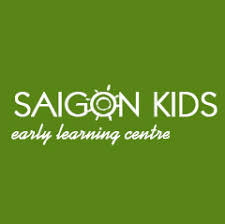

Early Childhood Teacher
- Early Childhood
- University Graduate
- Bachelor
- 2 years of teaching experience
- Degree in Early Childhood Education
Qualifications:
- Applicants should have a Bachelor’s degree and experience in Early Childhood Education, with a minimum of 2 years experience.
- Teachers with Reggio Emilia, NZ, or Australia training and/or experience are especially welcome.
- Fun-loving, kind, down-to-earth people with a strong work ethic and patient, flexible attitude required.
- Applicants should have an open mind about other cultures and show diversity in teaching to suit children’s needs.
- Medical insurance
- Visa
- Work permit
- Yearly flight allowance
- Monthly housing allowance
We have open positions for Early Childhood Teachers in Ho Chi Minh City, Vietnam.
Start Date: August 2025
Curriculum: Reggio Emilia, Australia, NZ (12 months - 6 years old)
Experience: 2+ years post-qualification experience
Saigon Kids was established in 1996. We have a strong family-orientated atmosphere and a beautiful outdoor area. Our excellent existing team works well together, creating an extremely friendly working environment. The philosophy, curriculum, and teaching practices are inspired primarily by the schools of Reggio Emilia, Italy. Their curriculum emerges primarily from children’s interests and questions and is driven by their natural curiosity to learn through play. They believe that both the physical and social environments are powerful contexts for learning and that children learn best when empowered to make choices, contribute their ideas, and learn in collaboration with others.
Living and working in HCMC:
Ho Chi Minh City is a great part of the city where to reside. It is a popular destination due to its fascinating culture, classic French architecture, and sleek skyscrapers, as well as ornate temples and pagodas. The city is also filled with rooftop bars that overlook Saigon and beyond, while fantastic restaurants offer a combination of French, Chinese, and, of course, local Vietnamese cuisine.
Saigon Kids: A Legacy of Learning
Established in 1996, Saigon Kids was one of the first international preschools to welcome expatriate children in Ho Chi Minh City. Founded by Ms. Kieu An, the school initially opened in District 3 and was relocated to its current site in District 2 in 2012. This significant move, supported by our entire school community, was a testament to the dedication and hard work of Ms. Kieu An and Early Childhood Teacher Ms. Victoria Cropp, who joined Saigon Kids in February 2009. With extensive teaching experience in Australia and Vietnam, Ms. Victoria now serves as our Educational Director.
To celebrate our 20th anniversary in 2016, we embarked on a dream project: building a beautiful new art studio and cooking lab in the Bamboo Garden of our school. This long-anticipated addition was completed in collaboration with Australian Early Childhood Teacher and Artist Ms. Denise Savins, who joined us as Atelierista in August 2016. Today, the art studio stands as a unique feature of the Saigon Kids Early Learning Centre.
Our Vision
From the beginning, our aim has been to create a small, friendly, and welcoming learning environment where children can thrive under the guidance of professional Early Childhood Teachers. After more than 20 years, we are proud to maintain this foundational vision. As new educational ideas emerge from early childhood research, we continually draw inspiration from the best practices of international education systems, allowing our vision to evolve while remaining true to our core values.
Our Early Childhood Community
The vibrant community at Saigon Kids is made up of children, families, and teachers from diverse cultures and countries. With up to 35 different nationalities represented in some school years, our students learn about diversity, similarities, and differences in a natural and enriching way while engaging with their teachers and friends. While English and play are the primary languages of our school, we actively encourage the sharing of culture, ideas, and knowledge as integral components of our daily experiences.
Similar Jobs


High School English Teacher

Primary English Teachers

Secondary Program Coordinator
